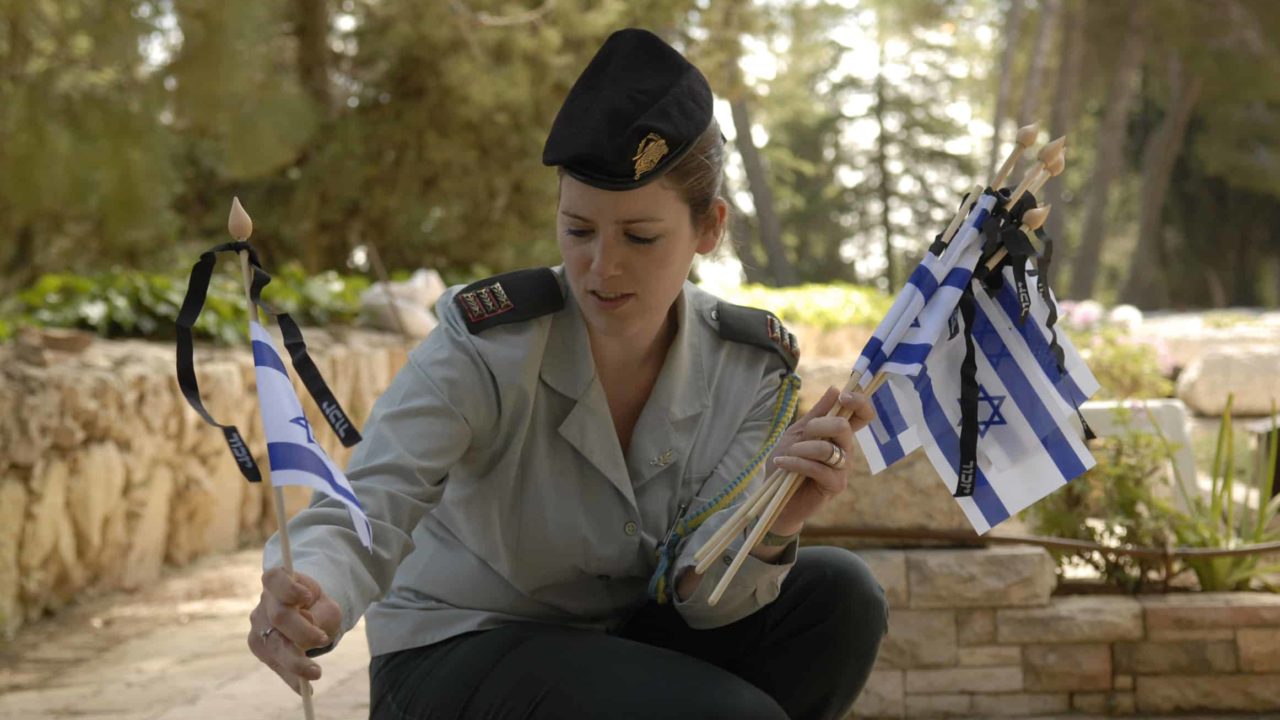The Full Measure of Devotion
What Israel can teach America about patriotism.

On July 4, 1863, Rabbi Sabato Morais of Philadelphia’s Mikveh Israel congregation ascended the pulpit to deliver the Sabbath sermon. Those assembled in the synagogue knew that over the previous few days, Union and Confederate forces had been engaged in an epic engagement at Gettysburg, but they had no idea who had won or whether Confederate forces would continue onward to Washington or Philadelphia. That year, July 4 coincided with the 17th of Tammuz, when Jews commemorate the Roman breach of the walls of Jerusalem. Morais prayed that God not allow Jerusalem’s fate to befall the American capital and assured his audience that he had not forgotten the joyous date on which he spoke: “I am not indifferent, my dear friends, to the event, which, four score and seven years ago, brought to this new world light and joy.”
An immigrant from Italy, Morais had taught himself English utilizing the King James Bible. Few Americans spoke in this manner, including Abraham Lincoln. Three days later, the president himself reflected before an audience: “How long ago is it?—eighty-odd years—since on the Fourth of July for the first time in the history of the world a nation by its representatives assembled and declared as a self-evident truth that ‘all men are created equal.’” Only several months later, at the dedication of the Gettysburg cemetery, would Lincoln refer to the birth of our nation in Morais’s manner, making “four score and seven years ago” one of the most famous phrases in the English language and thereby endowing his address with a prophetic tenor and scriptural quality.
This has led historians, including Jonathan Sarna and Marc Saperstein, to suggest that Lincoln may have read Morais’s sermon, which had been widely circulated. Whether or not this was so, the Gettysburg address parallels Morais’s remarks in that it, too, joins mourning for the fallen with a recognition of American independence, allowing those who had died to define our appreciation for the day that our “forefathers brought forth a new nation conceived in liberty.” Lincoln’s words stressed that a nation must always link civic celebration of its independence with the lives given on its behalf. Visiting the cemetery at Gettysburg, he argued, requires us to dedicate ourselves to the unfinished work that “they who fought here have thus far so nobly advanced.” He went on: “From these honored dead we take increased devotion to that cause for which they gave the last full measure of devotion,” thereby ensuring that “these dead shall not have died in vain.”
The literary link between Morais’s recalling of Jerusalem and Lincoln’s Gettysburg Address makes it all the more striking that it is the Jews of today’s Judea who make manifest the lessons of Lincoln’s words. Just as the battle of Gettysburg concluded on July 3, Israelis hold their Memorial Day commemorations on the day before their Independence Day celebrations. On the morning of the Fourth of Iyar, a siren sounds throughout the land, with all pausing their everyday activities in reverent memory of those who had died. There are few more stunning images of Israel today than those of highways on which thousands of cars grind to a halt, all travelers standing at the roadside, and all heads bowing in commemoration. Throughout the day, cemeteries are visited by the family members of those lost. Only in the evening does the somber Yom Hazikaron give way to the joy of the Fifth of Iyar’s Yom Ha’atzmaut, Independence Day. For anyone who has experienced it, the two days define each other. Those assembled in Israel’s cemeteries facing the unbearable loss of loved ones do so in the knowledge that it is the sacrifice of their beloved family members that make the next day’s celebration of independence possible. And the celebration of independence is begun with the acknowledgement by millions of citizens that those who lie in those cemeteries, who gave “their last full measure of devotion,” obligate the living to ensure that the dead did not die in vain.
The American version of Memorial Day, like the Gettysburg Address itself, began as a means of decorating and honoring the graves of Civil War dead. It is unconnected to the Fourth of July, which takes place five weeks later. Both holidays are observed by many (though not all) Americans as escapes from work, and too few ponder the link between the sacrifice of American dead and the freedom that we the living enjoy. There is thus no denying that the Israelis’ insistence on linking their Independence Day celebration with their Memorial Day is not only more appropriate; it is more American, a truer fulfillment of Lincoln’s message at Gettysburg.
In studying the Hebrew calendar of 1776, I was struck by the fact that the original Fourth of July, like that of 1863, fell on the 17th of Tammuz. It is, perhaps, another reminder that Gettysburg and America’s birth must always be joined in our minds, and linked in our civic observance. It is, of course, beyond unlikely that Memorial Day will be moved to adjoin the fourth of July. Yet that should not prevent us from learning from the Israeli example. Imagine if the third of July were dedicated to remembering the battle that concluded on that date. Imagine if “Gettysburg Day” involved a brief moment of commemoration by “us, the living” for those who gave the last full measure of devotion. Imagine if tens—perhaps hundreds—of millions of Americans paused in unison from their leisure activities for a minute or two to reflect on the sacrifice of generations past. Surely our observance of the Independence Day that followed could not fail to be affected; surely the Fourth of July would be marked in a manner more worthy of a great nation.
This essay was originally published in Commentary.
What Israel can teach America about patriotism.
What Israel can teach America about patriotism.

